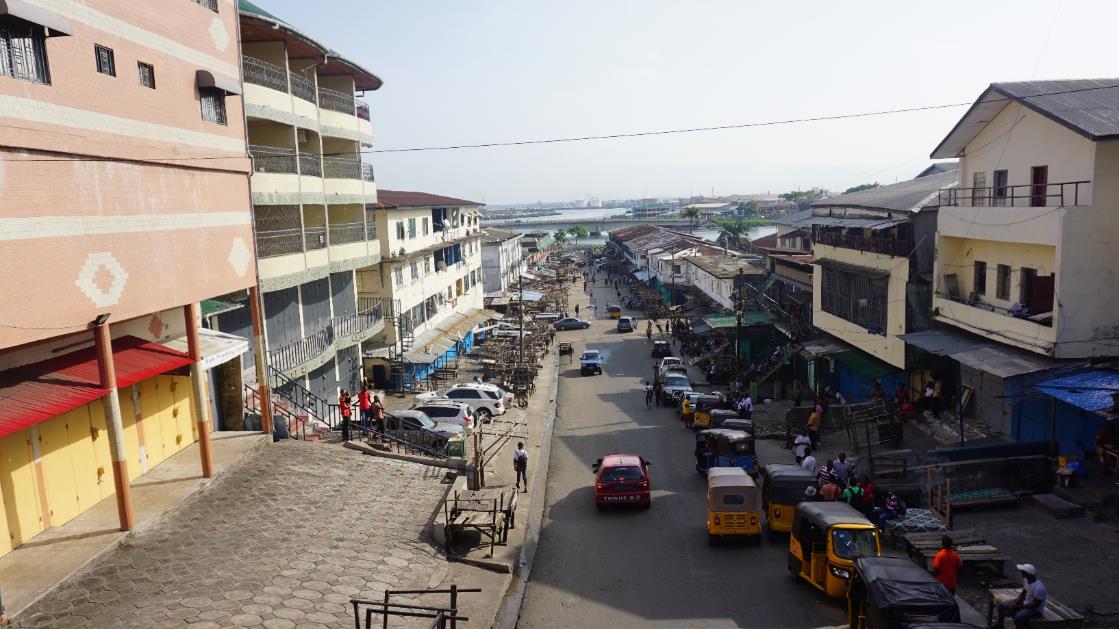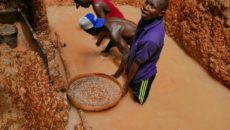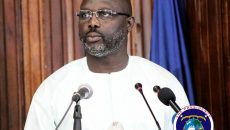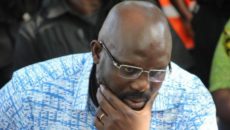Again, the Sirleaf government, through cunning machinations, has bought itself some time from falling under the quantum weight of the triumphant march of the masses of Liberians onto the stage of history. It now shamelessly celebrates its perceived victory over the people’s struggle for economic freedom, thus confirming its anti-democratic credentials.
The first time it was the cancelled April 12 Demonstration of 2013. The increasing rallying support of the masses from across the country toward the protest and the fear of April with its dark history became a matter of serious concern to the government.
The demonstration did not occur and the government, through Isaac Jackson, then Deputy Minister for Press and Public Affairs, Ministry of Information, Cultural Affairs and Tourism, boasted of bribing the planners to call it off. The popular gossip is that US$30, 000 was taken from government’s covers and used as a trade-off to end the protest.
Just recently, it was the failed nationwide closure of businesses of the Patriotic Entrepreneurs of Liberia in the name of seeking economic freedom for Liberian businesses.
Prior to this, PATEL successfully hosted a three-day protest that caused for the first time in history the economic shutdown of business life in the City of Monrovia by the willing and enthusiastic volition of business people themselves and not through fear of any kind.
This demonstration of the firm resolve of the Liberian people to stand to the occasion to take action when their rights are unbearably trampled over, precipitating the gradual drop in the exchange rate and prompting many to believe that the inflicted rate was a cause of government for a selfish agenda instead of the sole cause of the global economic crisis as argued by pro-regime apologists, charged the business men and women to demand through PATEL for more rights under the banner of “economic freedom.â€
More than the Rice Demonstration
The success of the first protest energized prospects of the second to be grander. The planned national coverage and duration of the second protest, undoubtedly, had the potential of a revolutionary upsurge. Its success promised to be the biggest demonstration of the masses of people on the stage of history, far greater the 1979 Rice Demonstration that is so far reputed as the first and greatest action of Liberians in the cause of social justice and economic freedom.
The Rice Demonstration, even though a Monrovia held protest, panicked the moribund and decadent True Whig Party government and left power on the street for over forty-eight hours. What more would a national closure of all businesses have caused the Sirleaf’s regime in minutes?
Already the country is stagnated in abject poverty, massive unemployment and backwardness in the midst of great material wealth that can engender massive turnaround. Curable diseases are killing the people in their hundreds. Young boys have taken to crime and drugs and their sisters to prostitution. Single mothers barely feed their children and themselves. Students are dropping out of school for inability to pay their fees. Income disparity between the few wealthy foreigners, the indigenous bourgeois and the masses of people are widening astronomically day by day.
In such a situation, halting economic life for ten consecutive days and, according to the protesters, beyond, if need be, was sufficient enough to break every chain of restraint holding back the masses and open the floodgates of consciousness and protest to unimaginable proportion.
Guided by a revolutionary leadership that would have sustained the astronomical number of students, workers, marketers, ‘pem-pem’ and ‘kekeh’ riders and others joining the protest across the country, the regime would have gone down history as a victim of the people’s revolutionary action.
Fear, Mixed Reactions and Fight Back
The announcement of the national strike action aroused great fear in the regime. The forces of reaction understood well the magnitude and inevitable aftereffects of Liberians from all sectors of the economy bringing all activities of economic life to a standstill, thus awakening the consciousness of the rest of the population, unable to bear the starvation and despair, to join the protest against a regime that distributes immeasurable suffering to its people.
The regime realized that the marching onto the streets of students, marketers, workers and everyone would mean the end of its survival. Madam Sirleaf and her courtiers couldn’t bear the thought of being crash under the merciless feet of an enraged citizenry seeking revolutionary change.
Recounting from the success of the first three-day protest and the history of April-notably the April 14, 1979 Rice Demonstration, the April 12, 1980 deposing of the moribund and decadent TWP, the April 6, 1996 bloody crisis- the regime began to feel increased blood pressure and gaseous reaction in its tummy.
On the other hand, the lessons from Egypt and elsewhere became afresh. Before history, the masses of the people exercised their inherent power greater than the constitution that brought down despots and changed the course of history.
In Liberia, the regime knew it would be foolhardy on its part to show its fear publically. This would have given more courage to the protesters. She must pretend to be in control and employ sinister devices to thwart the protest. Thus, she would proceed to psychological warfare using mixed reactions.
The Liberian National Police, noted for brutalizing peaceful students and protesters,  invited PATEL for questioning on its distribution of leaflets to business and warned that it would not condone any action that will destabilize the country’s peace especially as elections are around the corner.
For his part, Information Minister Eugene Nagbe, notoriously considered as the engineer of government’s dirty works dating back to the regime of Charles Taylor, called the planned protest a disturbance of the peace and economy growth. He warned that government would not tolerate the protest.
The Liberia Chamber of Commerce, in its April 6 press release, appealed for dialogue rather than protest. In its logic, the LCC claims that the history of disagreements between the business community and the government are not resolved by a strike which, it adds, leads to damage.
But the umbrella organization of business in Liberia, clearly demonstrating to be acting under the directive of the government, did not give any account of negotiations with the Government of Liberia that was handled without a strike. In reality, this government, as all governments in the past, does not know what negotiations mean when it is not demanded by the people in their mass.
Not surprisingly, because it was clear that LCC wasn’t acting on its own, the appeal ended in a subtle condemnation when the LCC called for obedience to the law as if it were illegal for people to shut down their businesses and protest. The right of citizens to assemble and seek redress as guaranteed by the constitution did not apply in the case of PATEL, as the LCC portrayed.
Speaking on the Truth Breakfast Show, Justice Minister Frederick Cherue threatened that any business that adhered to PATEL’s request would remain closed. He accused the protest as being politically motivated and announced that police had been sent to ensure that businesses that wanted to be opened weren’t prevented, even though PATEL had not threatened anything of such.
Before the first day of the planned protest, it became clear that the government had penetrated the business community with its threats and subversive activities. Its psychological war to install fear and other underpinnings were successful.
On April 10, which should have been the beginning of the protest, police officers were seen in market places with whips as a show of intimidation. Businesses, fearing retribution, began to open. The protest was called off to the amusement of the regime and its misleaders.
Beyond PATEL
The forces of corrupt leaders are celebrating the failure of the strike action called by PATEL. With their fears no more, they have begun to unleash the final looting of the national covers as elections draws nigh and the regime’s end is counting by months now.
The regime and its apologists are either ignorant or have soon forgotten that the people’s quest for revolutionary change is contingent on the repeated denial of their rights that arouses to an unbearable peak and causes them to make a revolutionary move.
Like in the case of all backward regimes in history, this regime does not acknowledge that to survive from one, two, or more revolutionary actions of the people does not mean it is victor but an indication that it should act in sync with the people’s aspirations for better life.
The display of PATEL was just one in a succession of revolutionary actions in Liberia’s history and to continue to infinity. The people in several ways have demonstrated their demand for social justice and economic freedom.
The long chain of little struggles became heightened in the progressive upsurge in the 1970s that occasioned the historic Rice Demonstration. The struggle for social justice and economic freedom or the struggle for rice and rights will endure long after PATEL’s struggle is faintly known or forgotten.
So long as the people are marginalized and deprived of liberty and justice, they will stand to the occasion in demand for change. So long as Liberians continue to be suppressed economically while other foreign monopoly capitals lead the national economy, the masses will rise up again and will be better prepared than before.
As history progresses, the people are learning and are getting stronger. They are following with keen eyes and opened ears certain happenings as the country draws up to elections.
They lost the opportunity to show their distaste with the regime through PATEL’s failed strike action. But they would not allow their elections to be manipulated against their democratic wishes to continue the circle of exploitation and suppression and provide safe haven for corrupt officials.
Featured photo by Zeze Ballah



